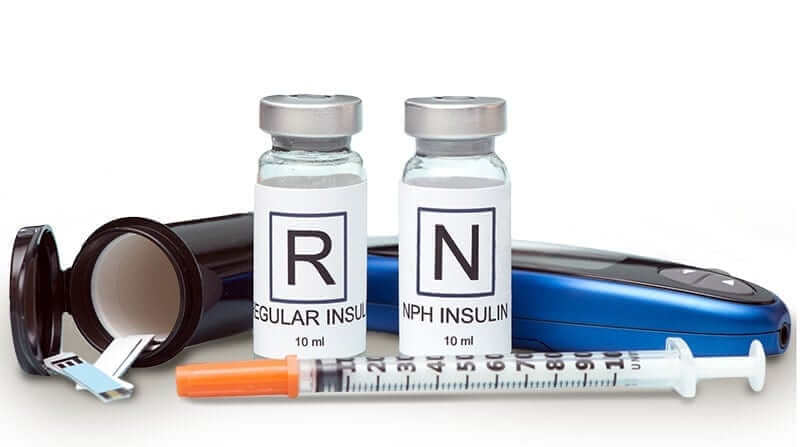Safely storing diabetes medication and supplies ensures they work when you need them. Heat, humidity, artificial light and improper storage methods can minimize the effectiveness of your diabetes medications. Learn how to properly store these essentials so they do their job to keep you healthy.
Beware of Extreme Temperature Changes and Light
Insulin can lose its effectiveness when stored at hot or freezing temperatures. Avoid storing insulin in heated areas such as the car. When insulin is not refrigerated, it should be kept as cool as possible at temperatures between 56°F and 80°F. If you take insulin with you on the road, keep it in a travel case with an ice or gel pack. Never let the insulin directly touch the ice pack.
Keep insulin on the middle shelf of the refrigerator, centered between the front and back of the shelf. Do not store on the refrigerator door since it is exposed to drastic temperature changes. Do not place way in the back where it gets colder. Do not store insulin in the freezer. Never use insulin if it freezes, even after it thaws. Do not use insulin if it reaches over 80 degrees.
Insulin should also be kept away from light. Avoid exposing insulin and diabetes medications to direct sunlight, even for brief periods of time. If insulin or medication has been exposed to heat or light and does not look right, don’t use it.
Do Not Use Cloudy Insulin
There are two forms of insulin, solution and suspension (clear and cloudy). If your clear insulin looks cloudy or has particles, do not use it. Cloudy insulin should have an even cloudy appearance after gentle rolling or tipping with no particles.
Watch the Expiration Dates
Keep unused bottles, pens or cartridges of insulin in the refrigerator at temperatures between 36°F and 46°F. Check the expiration dates before using insulin to make sure it is still good. If it is past the expiration date, discard the insulin. Opened insulin is only good for a limited time approximately one month. Check for specific time limits.
Storing Diabetes Medication – Avoid the Bathroom
Be aware of heat and humidity in the bathroom that can minimize the effectiveness of your diabetes medication. Don’t store medications in the bathroom. Steer clear of using the medicine cabinet, one of the worst places to store pills. Keep diabetes supplies in a temperature-controlled environment. Pill storage boxes keep medicines dry and safe. Make sure medicines are tightly closed at all times.
Diabetes testing supplies should be kept at room temperature. Make sure they remain sealed until you use them. Wash your hands before testing and properly dispose of used supplies immediately.
Outdated diabetes medications lose their potency. Always check expiration dates before taking any medication. Use an organizer to make it easier to stay aware of expiration dates. Never take outdated medications or use outdated testing strips.
You depend on your diabetes supplies and medications to maintain proper blood sugar levels and stay healthy. Know the rules for storage so your supplies are always fresh and effective. Be aware of expiration dates and safely dispose of outdated medications.







Leave A Comment